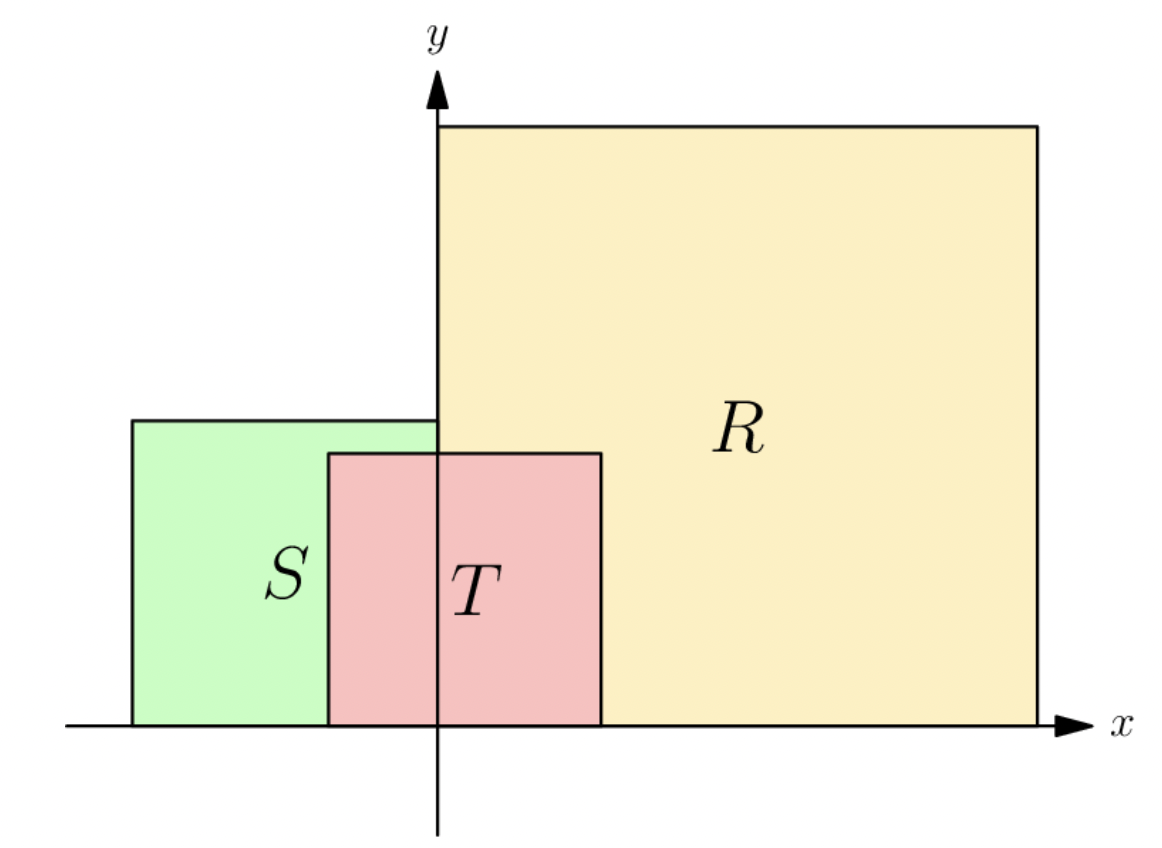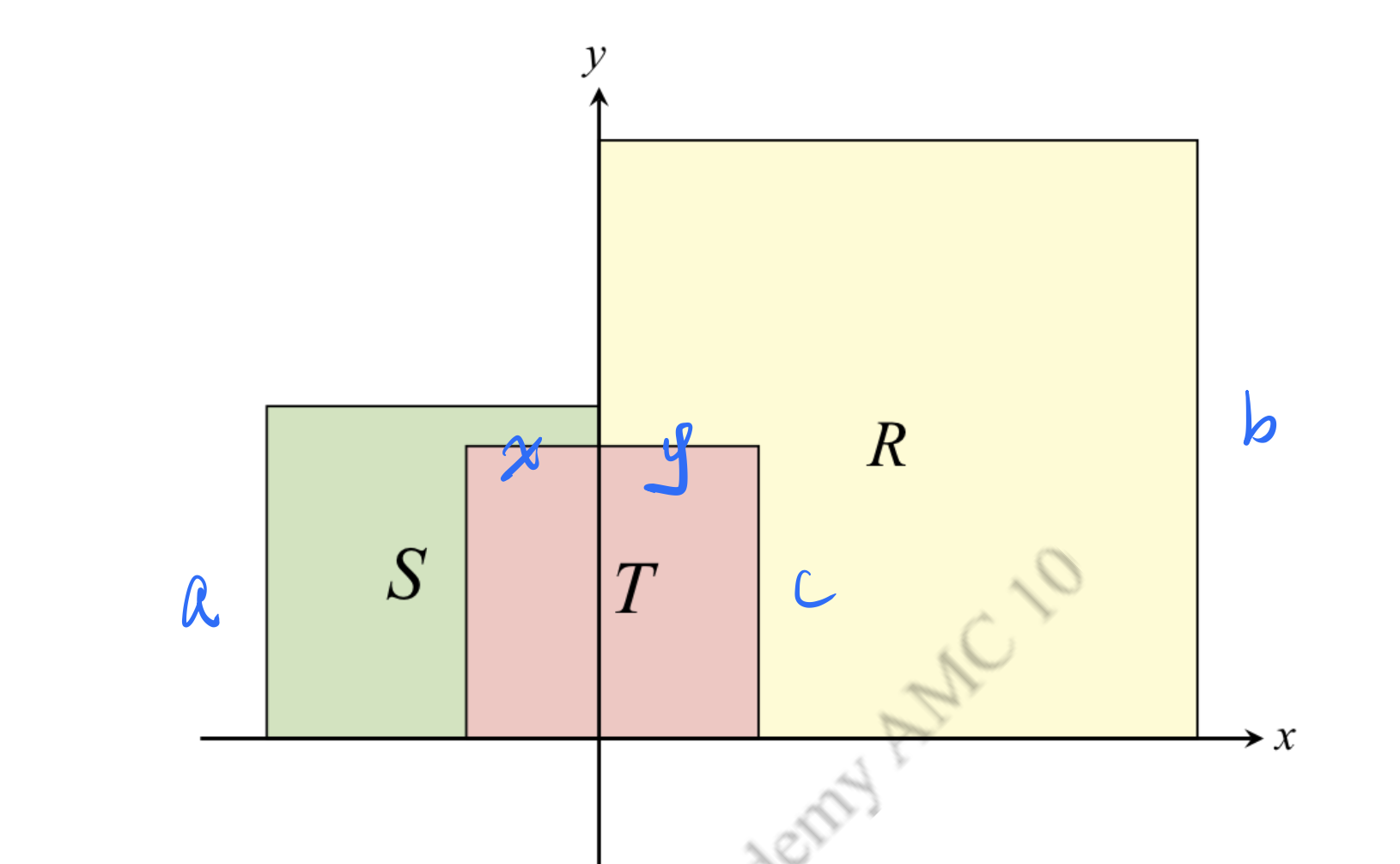2022 AMC 10 A
Complete problem set with solutions and individual problem pages
Problem 25 Easy
Let , , and be squares that have vertices at lattice points (i.e. points whose coordinates are both integers) in the coordinate plane, together with their interiors. The bottom edge of each square is on the -axis. The left edge of and the right edge of are on the -axis, and contains as many lattice points as does . The top two vertices of are in , and contains of the lattice points contained in . See the figure (not drawn to scale).

The fraction of lattice points in that are in is times the fraction of lattice points in that are in . What is the minimum possible value of the edge length of plus the edge length of plus the edge length of ?
- A.
- B.
- C.
- D.
- E.
Answer:B

①
②
③
Then
When , .
The equation: has integer solution.
, , so .
